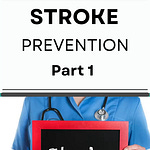Hi, I'm Dr. Jason Siegel, founder of NeuroNow and today we're going to be talking about the three most searched neurological topics in the last week.
It is the gut-brain connection,
The relationship between REM sleep and Alzheimer's,
The relationship between oral health and stroke.
Gut-Brain Connection
So most people think of Alzheimer's as a condition rooted solely in the brain, but recent research suggests that the gut, yeah the digestive system, might be more involved than we ever realized.
So what is exactly the gut microbiome? Well, it's a complex community of trillions of microorganisms living in our digestive tract. This includes bacteria, viruses, fungi, and other microbes. While they help with digestion and nutrient absorption their influence doesn't stop there. These microbes produce chemicals that affect our immune system, our metabolism, and even our brain function. The communication happens through what's called the gut brain axis: a two-way communication network linking the central nervous system with the gut via neural, hormonal, and immune pathways. Like a super highway, constantly exchanging signals between your brain and gut.
Here's where it really gets interesting: Recent studies using advanced imaging have shown structural changes in the guts of mice with Alzheimer's disease. Researchers observed abnormalities in intestinal cells, nerve fibers, and even in the mucus that lines the intestines.
What's more, these mice exhibited increased inflammation not just in their gut, but also in their brain. This suggests that an unhealthy gut may trigger systemic inflammation, which can cross the blood-brain barrier (the protective shield of the brain) and contribute to neurodegenerations.
In humans, similar patterns are emerging. Studies show that people with Alzheimer's tend to have less diversity in their gut bacteria and higher levels of pro-inflammatory microbes. This chronic, low-grade inflammation might accelerate the buildup of amyloid plaques and tau tangles, which are the hallmarks of Alzheimer's.
So what does this mean for us? Understanding the gut-brain connections opens up new possibilities for both preventing and treating Alzheimer's. Imagine using probiotics, prebiotics, or even dietary changes to modify gut health as a part of Alzheimer's therapy.
It's really, really important to remember it's early days, and these findings are very preliminary. That said, there is growing evidence that diet plays an important role in brain health. Diets rich in fiber, fermented foods, and omega-3s seem to promote gut health and may reduce the risk of cognitive decline.
While we don't have all the answers yet and we're not ready to prescribe probiotics as the way to prevent Alzheimer's or to treat Alzheimer's, it's becoming increasingly clear that taking care of your gut health is very important in taking care of your brain health.
REM Sleep and Alzheimer’s
Sleep is something we often take for granted. It's something that we spend a third of our life doing, and most of us don't really know why we go to sleep other than we just get tired. It's becoming very clear that high quality of sleep and sleep architecture is playing a major role in our overall brain health.
So let's start with the basics: REM sleep. REM stands for Rapid Eye Movement Sleep. It's one of the four stages of sleep and is closely associated with vivid dreaming. During REM sleep, your brain is surprisingly active, processing emotions, consolidating memories, and even clearing out waste products.
A recent study published in Alzheimer's and Dementia found that taking longer to reach REM stage of sleep is associated with biomarkers of Alzheimer's disease. Researchers observed that people who entered REM sleep later in their sleep cycle had higher levels of toxic proteins in the cerebrospinal fluid, specifically beta amyloid and tau, which are the proteins most associated with Alzheimer's. These patients who had late REM sleep also had lower levels of brain-derived neurotrophic factor, a protein that supports brain health and memory.
What's even more interesting is this pattern appeared even in individuals who had no noticeable cognitive symptoms yet. That means REM sleep disturbances might be one of the first signs that Alzheimer's is developing long before memory loss or even confusion sets in.
So why is any of this important? Well, early detection is key when it comes to Alzheimer's. By identifying changes in sleep patterns, we might be able to intervene earlier with treatments or lifestyle changes that could slow disease progression.
If you've been dismissing poor sleep as just a consequence of our modern lives, it might be time to reconsider. In our BrainShield program, we do home sleep studies on all of our patients. It's actually able to tell us a lot of information about sleep architecture, sleep quality, REM sleep, REM sleep duration, and we may find it as a helpful tool to help identify those at risk of developing Alzheimer's in the future.
Oral Health and Stroke
Since we're all little kids, we've been told to brush our teeth at least twice a day. It helps us prevent cavities and gum disease, but it could also have a big consequence on our cardiovascular and cerebrovascular health.
Researchers have long suspected that there's a link between gum disease and heart disease. Now studies are showing that specific bacteria in your mouth could significantly increase your risk of stroke.
One bacterium in particular, Streptococcus anginosus, has been found in higher amounts in people who've had strokes. This bacterium is normally part of the oral microbiome, but can become problematic if it enters the bloodstream, potentially triggering inflammation and contributing to the development of blood clots.
Research presented at the American Heart Association's International Stroke Conference in 2025 indicated that heightened levels of the oral and gut bacterium Streptococcus anginosus could be linked to an increased risk of stroke and poor post-stroke outcomes. The study found that individuals with higher levels of this bacterium had a 20% increased risk of stroke and a higher likelihood of death and major cardiovascular events.
An additional study presented at the conference showed that regular dental flossing is linked to a lower risk of ischemic stroke, primarily by reducing systemic inflammation, which can lead to things like atrial fibrillation, an irregular heartbeat that can increase your risk of stroke.
Overall, the mechanisms are not fully understood, but here's the theory: Bacteria from the mouth can enter the bloodstream through inflamed or bleeding gums. Once in the bloodstream, they can cause inflammation in the blood vessels, promote plaque formation, and even trigger clotting, all of which increase stroke risk.
So here's the takeaway: Maintaining good oral hygiene isn't just about a bright smile. Brushing, flossing, and regular dental checkups could be protective to your brain as well. If you have gum disease, it's not just a dental issue, it could be a sign of systemic inflammation that needs to be addressed.
Dentists are doctors too. Listen to your dentist. Listen to their advice on taking care of your oral health, brushing, flossing. Don't miss any appointments. Ask your dentist, or your neurologist, if you have any further questions.
Conclusion
So that wraps up our first set of posts for Substack and our first Neuronow Insights podcast. Hopefully you found this interesting. Please leave comments. Tell us what you want to hear more of, hear less of. Give us topics to talk about and research. I want this to be helpful for you. I want you guys to learn and be engaged, so please give your feedback.
If you're interested in learning more about NeuroNow, you can visit our website at www.yourneuronow.com.
If you're interested in our BrainShield preventative neurology program, you can visit our site at www.yourbrainshield.com.
Thanks a lot.











Share this post